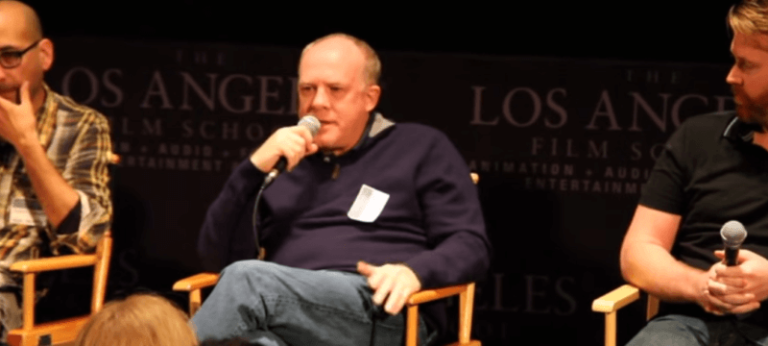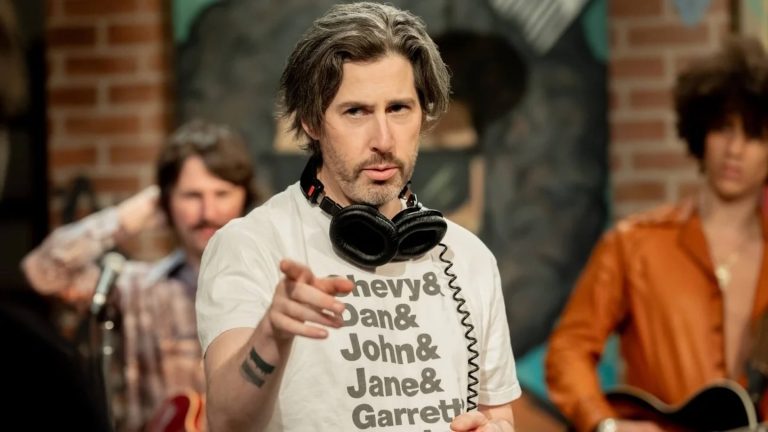
ScreenCraft's Youtube Channel features an excellent panel with independent film luminaries Cassian Elwes (producer of Elvis & Nixon, Dallas Buyers Club, Lee Daniel's The Butler), Adam Simon (writer of The Haunting in Connecticut, Salem), Matt Miller (assistant director turned producer and co-founder of Vanishing Angle), and Sean Covel and Chris "Doc" Wyatt (producing team behind Napoleon Dynamite).
The panel was held during ScreenCraft's first seminar on screenwriting and producing outside the studio system, in conjunction with the Hero Film Initiative and the LA Film School.
The group discussed that age old question — How do you get your script read?
Here we pull five bullet points from the discussion and elaborate further to offer you some perspective and hopeful directions to take as you try to get your script read.
1. If the Script Is Great, It Will Make It Into the System
There is a constant saying in Hollywood today: "The cream will rise."
It's one thing to have a good script. There are many, many of those. But good isn't good enough. It has to be great. In fact, it has to be amazing. There's no single answer to how to write such a script. You can read every screenwriting theory book in the market, take every premier seminar and course, and study every great film and script out there and still not be able to come up with a definitive answer.
A great script in Hollywood is an accumulation of engaging concepts, characters, stories, and plotting. A hybrid of both originality and something that is going to attract major audiences.
And a great script is also about timing — being in the right place, at the right time, with the right people, and meshing with the current market needs and wants. One script may be dead in the water in the current market, only to come alive a few years later.
Regardless, if the script manages to capture most or all of those elements, it will rise through the proper channels once it goes out. It will be passed from contact to contact and the buzz will grow.
So pay extra attention to what you release into the market. Don't submit that first script, because your first script will always be your worst. You need to hone your skills and take the time to find that amazing script within you. And you need to know that it usually takes a few scripts before you write that one.
"I am a great believer that the material, if it's good enough, will make it to the top," legendary producer — and former William Morris Independent head — Cassian Elwes stated.
2. It's Relationships
"It's relationships. The whole business is relationships," Elwes said with vigor.
Screenwriters cold querying the agents of big movie stars and marque directors and selling their script just won't happen. "They will not take you seriously," Elwes pointed out. Even the thought of an assistant at those agencies or major production companies falling in love with your script from a blind submission and taking it to their powerful bosses is rare.
Elwes was direct in saying, "For the most part, the material was coming through [agents at William Morris] through lawyers, through managers, through other producers, through friends and people they had relationships with. So all I would have to say about this — and I know that this is frustrating — is to get out there, hustle around, find people who do have relationships with other people... and if your script is good enough and they like it, they will somehow or other get it to somebody else who will get it to somebody else who will get it to somebody else and it will eventually end up in the right place."
3. The Blacklist
Elwes — who headed a major agency — suggested The Black List as an excellent platform to take your scripts to in order to get noticed. Believe it or not, in the time since this panel, many major agents and managers are going to The Black List to find which scripts are slowly rising to the top.
It's a viable option as long as screenwriters only submit their best scripts.
4. Lose the Fear that Someone Is Going to Steal Your Idea
"Lose the fear that putting your script out there means someone is going to steal your idea," Matt Miller said.
Studios are constantly being sued by screenwriters seeing something on the big screen and saying that they wrote something very similar to that.
"It's so hard to come up with original stuff and of course there's always elements of other movies," Elwes reiterated.
The fact is, all screenwriters and filmmakers are influenced by what has come before, as well as all other types of fiction, news headlines, current hot topics, etc. If you're sitting down writing what you feel is an original concept, chances are there are dozens of others in the world writing the same thing — or a close variation of that same concept.
Novice screenwriters often have this fear of showing their work to others, thinking that their ideas are going to get stolen. "You know what? Show it to everybody. Show it to everybody and hope they show it to everybody else," screenwriter Adam Simon said.
The truth of the matter is, studios would rather buy your script than face lawsuits, bad press, and even more expensive settlements.
5. Network at Film Festivals
"Film festivals. Go be among like-minded people doing [the same] things," Napoleon Dynamite producer Sean Covel suggested when asked where screenwriters can go to network.
Festivals like Sundance and Austin have become immensely popular and the film industry is ever present. Sure, many of the key marketing events — VIP parties, etc. — are roped off for VIPs only, but going to the panels and even standing in line for movies is a great way to network. Read How to Network & Pitch at Pitch Fests, Film Festivals, and Industry Events to get a comfortable sense of how you can create Hollywood contacts.
There is no single answer as to how to get your script read in or outside of Hollywood. While it may seem difficult, the answer is actually quite simple — get your script and yourself out there to the right people. The rest is up to the fates.
Tags
Get Our Screenwriting Newsletter!
Get weekly writing inspiration delivered to your inbox - including industry news, popular articles, and more!



























